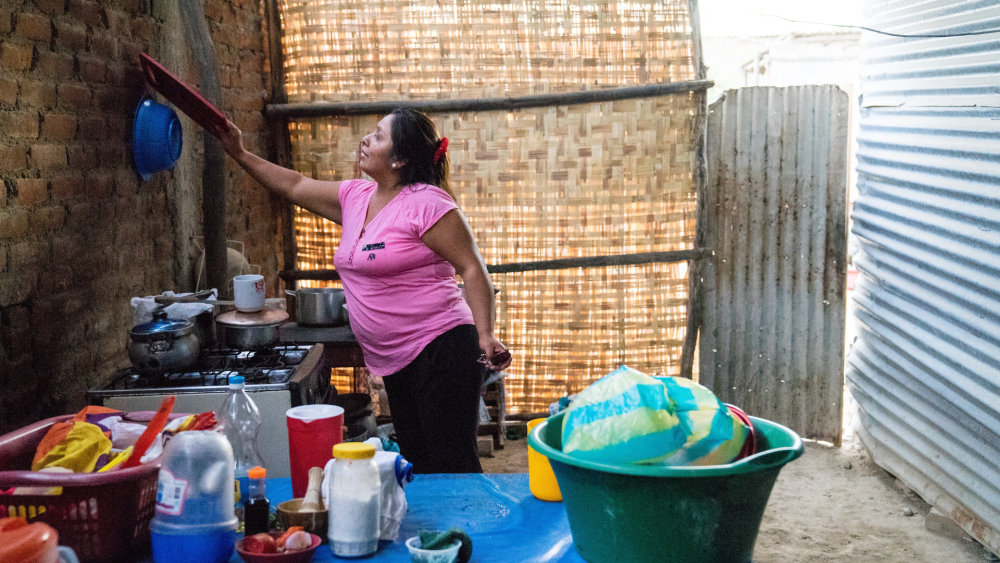Meet Anna - The Base of the Pyramid's Impact in Latin America
Meet Anna - Belén, Peru
“I can't sleep under a net because it's too hot. But if I sleep outside the net, I’ll be eaten alive by mosquitoes. Either way I don't sleep,"
The community of Belén sits along the Itaya river. When the water rises, it signals the beginning of mosquito season. Health workers visit Belén at the beginning of each mosquito season to document cases of dengue fever and teach households about mosquito nets.
Anna and her husband Jacob built their home themselves, from donated pieces of corrugated metal and plywood. Many of her family’s possessions are gifts or salvaged materials. Anna works as a mother and a homemaker, and her husband, Jacob, earns an inconsistent wage as a laborer. It's enough for food, clothing, and a few household items but not much else.
While a local health clinic provided a free mosquito net, and she purchased two more at the local market for her children, Anna needs a solution that is not only accessible and affordable, but seamlessly fit into her family’s routines, aligns with her priorities, and may even make her family’s lives better.
In Peru, SC Johnson partnered the University of Notre Dame, in cooperation with the University of California, Davis and U.S. Naval Medical Research Unit Six, to conduct a first-of-its kind clinical trial of an innovative spatial repellent that demonstrated reduction of Aedes-borne virus infection rates by an estimated 34%. This spatial repellent, Mosquito Shield™, will an important gap in access to tools that prevent mosquito-borne illnesses for the most vulnerable populations.
